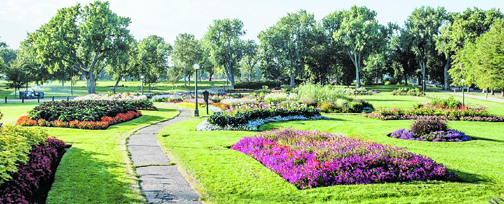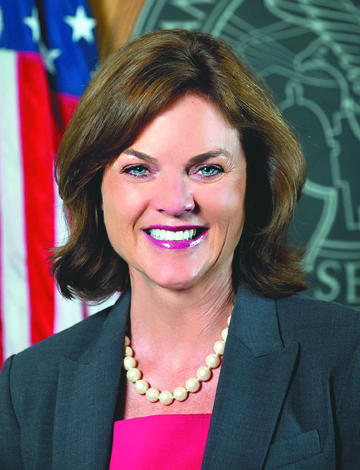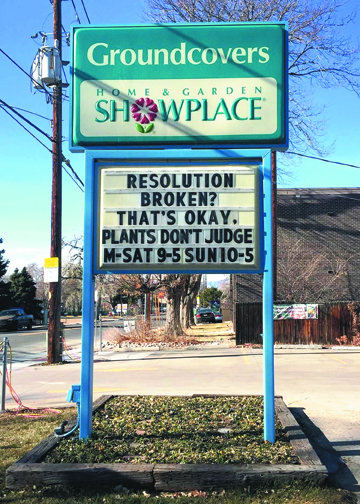Denver Slips To 29th Place In National Park Ranking; City Pays $5.1 Million For Park Property; Pair Launches New Trust
by Glen Richardson
Denver parks have skidded to 29th place in the latest national ranking of 100 big city parks. That is for a city that hovered just beneath the top 10 at number 13 in the park hierarchy in 2015, just four years earlier.

This year’s Trust for Public Land ParkScore® released May 7 reveals just how fast and far Mayor Michael Hancock and Denver Parks & Recreation Director Happy Haynes have dragged down Denver, once known as the city within a park. As the administration sells or gives away park space to developers, the amount of Denver’s city land used for parks has dwindled to 8% compared to this year’s national median of 15%.
The city’s acreage average is rated 52.5 out of 100 with investments rated slightly higher at 60 out of 100. The only thing that buoyed Denver’s ranking was the wide distribution of its 314 parks, giving the city an access score of 82.5 out of 100.
Trust, Park Purchase

The dramatic drop in Denver’s city park ranking comes as the launch of a new nonprofit known as the “Denver Park Trust” was announced. It is a joint venture by Denver City Councilwoman Kendra Black and Frank Rowe, a member of the Parks & Recreation Advisory Board.
It joins the ranks of cities such as Portland and Minneapolis that have park foundations that help raise money and keep an eye on public parks. According to Black and Rowe the trust will have an annual budget of $250,000. The trust will provide added revenue to the funds raised by voter passage of Measure 2A that added a .25% tax increase for park projects and land acquisition. Black says even that increase can’t support Denver’s parks system. “That’s where Denver Public Trust comes in,” she explains.
Coincidently the Denver City Council has approved a resolution for the $5,100,000 purchase of property at 4301-4307 E. Iliff Ave. in Black’s district for future use as city park land using 2A funds. It is the 2.26-acre site of Groundcovers Greenhouse located two blocks south of Evans Ave. and three blocks east of Colorado Blvd. The retail-wholesale nursery-greenhouse owned by Alison Tyler and Gary Luster closed at the end of July. It is the first piece of land purchased using revenue from the 2A park sales tax.
Greenhouse Site

Nestled in a quiet residential neighborhood just east of Colorado Blvd., the property operated as a greenhouse for nearly 40 years. The city approached greenhouse owner Gary Luster with an offer. “As many of you have heard, our property is being purchased by the city of Denver and will be turned into a park within a couple of years,” he reported on Groundcovers’ website.
Luster told area news outlets he had never put the building up for sale and had vowed that he never would. In the past decade he reportedly turned down at least a dozen offers. “But we got the right offer for the right reasons,” he concluded.
Councilwoman Black and Parks & Recreation officials say they had been scouting the neighborhood for a park location for the last seven years. “Additional park access in the University Hills North neighborhood is critical to supporting an active, healthy lifestyle for the residents who live there,” says Black. The closest parks in the neighborhood are Observatory Park, Eisenhower Park, McWilliams Park and Prairie Park. All would require a 20 to 30-minute walk.
Few Year Project
While there are parks near University Hills such as Mamie D. Eisenhower Park, the goal of 2A is to have parks within walking distance of all residents. Many residents in University Hills also had to cross major streets like East Yale Ave. This is something many parents are hesitant to let their children do, according to Black.
Black says it will be a few years before a park is built. First, the city will look at logistics and clear any buildings that won’t be used. Parks & Recreation’s Gordon Robertson says the city may keep the 0.63-acre greenhouse space to support the department’s main greenhouse at City Park. Any garden equipment left behind also may be repurposed.
The new park will then go through a public process. Either late this year or early next year, the city will host an open house with residents to determine what amenities they would like on the two-acre space, which is a decent size for a typical park with a playground, according to Robertson.
Vision For Trust

According to Frank Rowe — the only staff member and executive director of the new Denver Park Trust — “Our vision is to acquire land for new parks in high-density and high-need neighborhoods. We’ll also work on providing ‘gap funding’ for projects within parks.”
Rowe says the nonprofit will focus on communities where there isn’t a park within a 10-minute walk. One of Trust’s first projects will be raising gap funding for renovation of St. Charles Park in the Cole neighborhood. Phase one is complete, but funds are lacking to begin phase two, he explains. Another early project taken on by the nonprofit is the addition of a shade structure at Lindsley Park in the Hale neighborhood.
Black believes donors feel more comfortable writing a check to a nonprofit rather than a governmental body. The Trust also aims to garner public support and awareness of the city’s parks, Rowe adds. “I think if you talk to most folks, they love their parks. And a lot of people want to get engaged in their parks, participate and give back, so we can be a conduit for that.”
Pair’s Background

Prior to launching the trust, Rowe worked for six years at the nonprofit news outlet Chalkbeat. He was appointed to the Parks & Recreation Board by Councilwoman Black when she was first elected to city council in 2015. His wife Anne Rose represents southeast Denver on the Denver School Board, just as does Parks & Recreation Director Happy Haynes. Anne Rowe served as Vice President of the School Board from 2013 to 2015.
While pursuing a park in her district, Black has been less aggressive in support for parks and open space citywide and is considered extreme pro-development. She supported the controversial drainage project at Park Hill Golf Course and along with two other councilmembers supported some development at the golf course. Some bloggers have scolded her for voting to spend money to tear up City Park.
A study commissioned by The Park People, Greenway Foundation and Kaiser Permanente with Denver’s support, reveals city parks deliver $7.1 million of revenue to the city while increasing resident wealth by $48.7 million.
